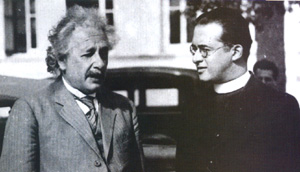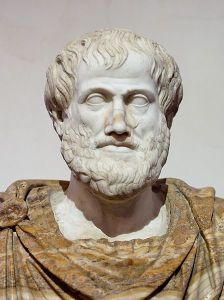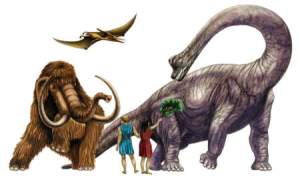Proof 4: Degree
The argument from degree relates to the formal cause of Aristotle. The formal cause is the cause from form (think Platonic form). When a seed in a pine cone grows, it transforms to become more and more like the form of a pine tree. A newly conceived baby is less like the form of an adult human than a newborn baby is. Plants and animals grow to approximate their adult form.
But humans also grow in another way, they grow in goodness. Anyone with a toddler can attest to the fact that children aren’t very good.

“But I don’t wanna share!”
As we develop, we grow to approximate this goodness. Some of us are worse than others, but no one refrains from making any mistakes.

If you think you are perfect, just ask grumpy cat.
What is the perfection or good we try to approximate as we grow? What is the form of good we strive to achieve? As my grandma used to say:
Good, better, best,
never let it rest;
’till your good is better,
and your better best.
We strive towards some concept of “good”, and Aquinas states Christians name this good “God”.
The sum of Dawkins response is:
That’s an argument? You might as well say, people vary in smelliness but we can make the comparison only by reference to a perfect maximum of conceivable smelliness. Therefore there must exist a pre-eminently peerless stinker, and we call him God. Or substitute any dimension of comparison you like, and derive an equivalently fatuous conclusion.
In doing so, he misunderstands Aristotle and subsequently misunderstands Aquinas. Of course there is a platonic form of stinky. We use the word “Stinky” in a whole slew of situations because the word points to the form which the situation approximates. When you read the word “Tree”, a certain form of “tree”-ness pops into your head. For me, it looks something like this:

I think this is a close approximation of the platonic form of “tree”.
The argument Aquinas makes is that when I, as a Catholic, say “Good”, the form that pops into my head is God. That the form of God pops into my head shows the non-theistic philosophy of Aristotle doesn’t exclude God as some of the Muslim Philosophers thought. It is a proof God exists within the rational mind and within the framework of Aristotelian thought.
To digress upon the matter, it is clear that there is a good towards which people aim their lives. Some have named that good “Family”, others “Comfort”, and still others label that good “Success”. All these things are the abstract forms of what we actually accomplish in life. The family is mutable: adoption, marriage, birth, and death all change the family while the form remains the same. Comfort and success are similar. I might have some comfort and success where I am at in life, but I might still strive for more or different comfort and success. There is no limit or perfect expression of these goods on our earth. No one argues these goods don’t exist, even if they are impossible to perfectly pin down or impossible to hold and see. One man’s success might be becoming president, another’s might found in be being a house spouse. One woman’s comfort might be found by having children, which might be the discomfort of another. I cannot see externally the success or comfort that is being strived after. The argument Aquinas makes is that a Catholic labels the good towards which we aim our life as “God”, rather than “Family” or “Money” or “Fame” or what have you. That we have a unique label to describe a unique type of good we experience in our lives and that we strive after that good is proof that this good exists. After all, how can we get closer to approximating something that doesn’t exist? The degrees of goodness in our various lives therefore show we can approximate something, and that thing is what Catholics call God.
It is not a “fatuous conclusion” to draw because it is the reasoning power of Aristotle combined with the raw experience of life. A better way for Dawkins to disprove this proof would be to offer a better solution to the problem of universals than Plato and Aristotle had (i.e., find a way to to explain universals without recourse to platonic forms), or to expand upon Hitchens work to create a disconnect between God and good in my mind. If it is shown that the good I am advancing towards has some characteristic incompatible with God, then it becomes easy to argue this proof is a failure.
Hopefully one might also see how this is a rather insufficient proof of God if one hasn’t already experienced God. If the good I seek is “Money”, then I am not trying to get close to God but rather to cash. This proof would then confirm wealth exists, rather than be proof that God exists. That is hardly a winning argument if used to try to convert souls.









